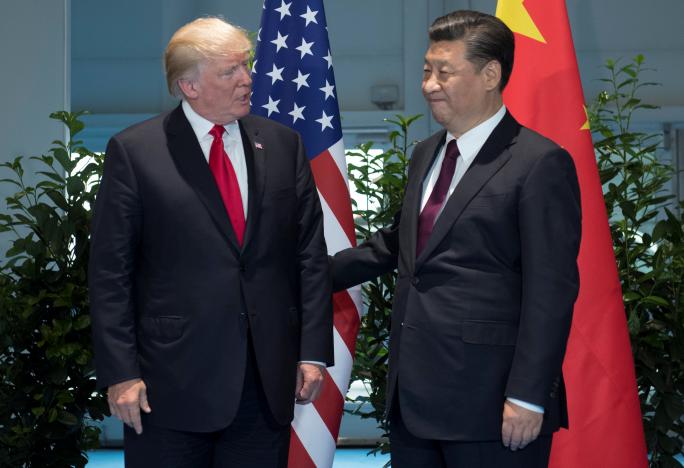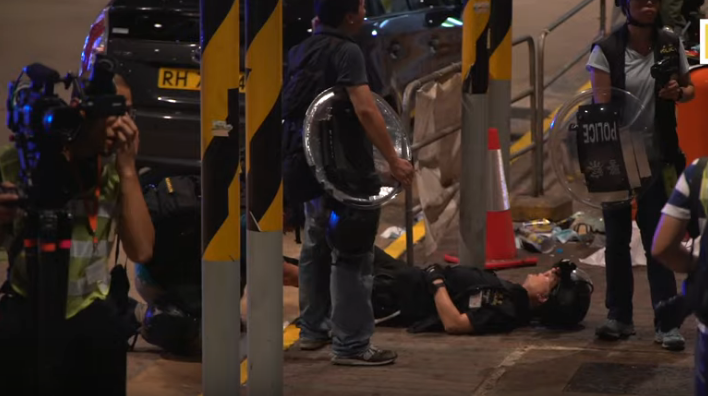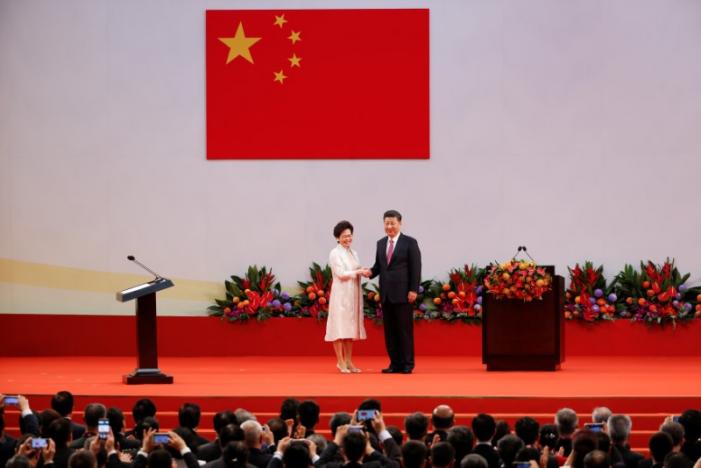The Chinese government on Thursday threatened the United States after its President Donald Trump signed two bills into law supporting Hong Kongs pro-democracy protesters.
Trump in a statement said he had signed the bills the Hong Kong Human Rights and Democracy Act 2019 and one against crowd control munition exports to the territory out of "respect" to Chinese President Xi Jinping and the people of Hong Kong, Efe news reported.
China's Ministry of Foreign Affairs in a statement Thursday responded by reminding "the US that Hong Kong is part of China and Hong Kong affairs are China's internal affairs where no foreign government or force shall interfere. This Act will only further expose the malicious and hegemonic nature of US intentions to the Chinese people, including our Hong Kong compatriots."

"We urge the US to not continue going down the wrong path, or China will take countermeasures, and the US must bear all consequences," it added. Chinese Vice Foreign Minister Le Yucheng also summoned US Ambassador to China Terry Branstad "to lodge stern representations and strong protest" to the passing of the Act.
The two countries are still immersed in negotiations to end their trade war, which could be affected by the bills, however the statement does not specify the countermeasures it intends to apply. The Hong Kong government also expressed its "strong opposition" to the new laws, saying in a statement that they "contravene in Hong Kong's internal affairs" and would harm relations with the US.
"The two acts are unreasonable. Although human rights and democracy are mentioned in the title of the Act, some of the provisions in the Act are actually about export control and enforcement of the sanctions imposed by the United Nations in Hong Kong, which are totally unrelated to human rights and democracy in Hong Kong," a government spokesman said.

The Hong Kong Human Rights and Democracy Act 2019, passed last week by the US Senate, requires the US State Department to conduct a review at least annually as to whether Hong Kong retains enough autonomy from mainland China to qualify for special trade considerations, and threatens sanctions against officials responsible for human rights violations.
Following the approval by the Senate last week, the Chinese government threatened that "China will take strong opposing measures and the US has to bear all the consequences" if it was passed into law. Beijing also reportedly summoned a senior US diplomat over the move.
The second bill signed into law Wednesday prohibits US exports of specified police equipment such as teargas, pepper spray, rubber bullets and stun guns to Hong Kong.
"They are being enacted in the hope that Leaders and Representatives of China and Hong Kong will be able to amicably settle their differences leading to long term peace and prosperity for all," Trump said.

At the weekend, the pro-democracy movement in Hong Kong swept the local elections, winning 388 of the total 452 district council seats up for grabs. The side aligned with Beijing suffered a crushing defeat with only 59 councilors, compared to the almost 300 it had, while independents won five seats in the elections which saw a record 71.2% turnout.
Hong Kong was passed to Chinese sovereignty in 1997, although it still retains a degree of independence from Beijing under the "one country, two systems" formula. According to the handover deal between London and Beijing, this political system - which includes certain legal freedoms not recognized in mainland China - must be preserved until 2047.









